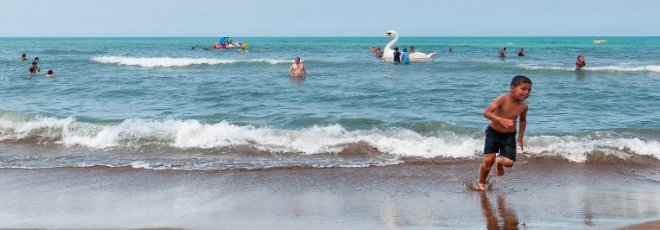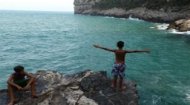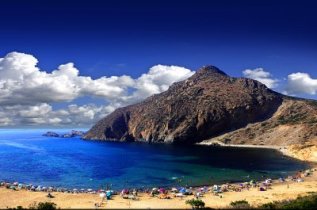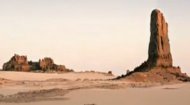|
Algeria Profile |
Algeria Profile |
Algeria Profile | Algeria Profile |

|
Algeria's economic profile has long been tied to its vast natural resources, primarily oil and natural gas. These hydrocarbons account for the bulk of its export earnings and government revenue, making the nation a critical player in global energy markets. This resource abundance has allowed for significant state-led development projects, including extensive infrastructure, public housing, and social welfare programs. However, the economy faces the challenge of diversifying away from its heavy reliance on oil and gas, especially given global energy price fluctuations and the imperative for sustainable development. The government is actively pursuing strategies to boost other sectors, including agriculture, tourism, industry, and renewable energy. Efforts are also underway to improve the business climate, reduce bureaucracy, and encourage foreign direct investment to foster private sector growth and create much-needed employment opportunities, particularly for its large youth population. Algeria's social profile is characterised by its vibrant blend of Arab and Berber identities, unified by a shared sense of Algerian nationhood. Arabic is the official language, with Tamazight (Berber languages) also recognised as a national language. French remains widely spoken, particularly in business and higher education, reflecting its colonial legacy. Islam is the state religion, deeply influencing daily life, social norms, and cultural practices. The population of of some 47.4 million (2025) is predominantly young, with a significant youth bulge presenting both opportunities and challenges, particularly regarding employment and social integration. Family values are paramount, emphasising strong kinship ties and hospitality. Despite rapid urbanisation, traditional community structures remain strong, particularly in rural areas. The government invests heavily in education and healthcare to improve social indicators, striving for equitable access to services across the vast territory. Algerian cultural heritage is extraordinarily rich and diverse, a testament to its multifaceted history. It is a captivating blend of Berber, Arab, Andalusian, and even subtle European influences. This is evident in its architectural styles, ranging from ancient Roman ruins like Timgad to Ottoman-era casbahs and modern urban designs. Music is a powerful expression of Algerian identity, with genres like Rai, Chaabi, and Kabyle music enjoying widespread popularity both nationally and internationally. Algerian literature, which has produced Nobel laureates like Albert Camus and celebrated authors like Kateb Yacine and Assia Djebar, often explores themes of identity, colonialism, and tradition. Traditional arts and crafts, including intricate pottery, weaving, jewelry, and leatherwork, are highly valued and reflect centuries of artisanal skill. The country boasts several UNESCO World Heritage Sites, including the ancient city of Djémila, the M'Zab Valley, and the Tassili n'Ajjer National Park, testifying to its historical and natural grandeur. The rhythm of daily life in Algeria varies between its bustling cities and serene rural areas. In urban centres like Algiers, Oran, and Constantine, modern amenities blend with traditional markets and social customs. Commuting, work, and social gatherings revolve around family and community. Cafés are central to social interaction, where people gather to discuss current affairs, sports, and life over coffee or mint tea. Friday, the Muslim holy day, is traditionally a day for family gatherings and mosque visits. During Ramadan, the holy month of fasting, the country transforms, with nights becoming vibrant social occasions for communal meals and festivities. In more rural and Saharan regions, daily life is often more closely tied to agricultural cycles and traditional practices, with strong community bonds and self-sufficiency. Algeria has the distinction of being the largest country to border the Mediterranean Sea and is the largest country in Africa and is in 96th place out of 193 countries and territories in 2025 when ranked in terms of life expectancy, literacy, access to knowledge and the living standards of a country putting it above other Arab states and above average world development.
|










